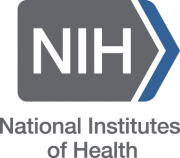Posted on March 08, 2019
Source: NIAID

"Eighty-six percent of individuals who entered HIV care soon after diagnosis maintained viral suppression after 48 weeks during a clinical trial conducted at four National Institutes of Health (NIH)-funded Centers for AIDS Research (CFARs) across the United States. Participants in the clinical trial, called iENGAGE, achieved viral suppression in an average of just 63 days. The findings were presented in a poster at the Conference on Retroviruses and Opportunistic Infections (CROI 2019) in Seattle."
"The findings from iENGAGE, which was funded by NIH’s National Institute of Allergy and Infectious Diseases (NIAID), underscore the benefits of linking people with HIV to treatment services soon after diagnosis and highlight the importance of efforts to engage all people with HIV in care. Provision of effective HIV treatment resulting in sustained viral suppression is a critical component of efforts to end the HIV epidemic in the United States."
"Notably, many iENGAGE participants had other medical conditions and unmet basic needs that can make adherence to medical visits and daily antiretroviral therapy (ART) difficult. About half of the study participants reported needing supportive services, including assistance with housing, employment, food and transportation. Mental health issues were also prevalent, with 31 percent of participants having depression and 30 percent having anxiety. Roughly one-third of participants reported high-risk alcohol use, and 18 percent reported substance use."